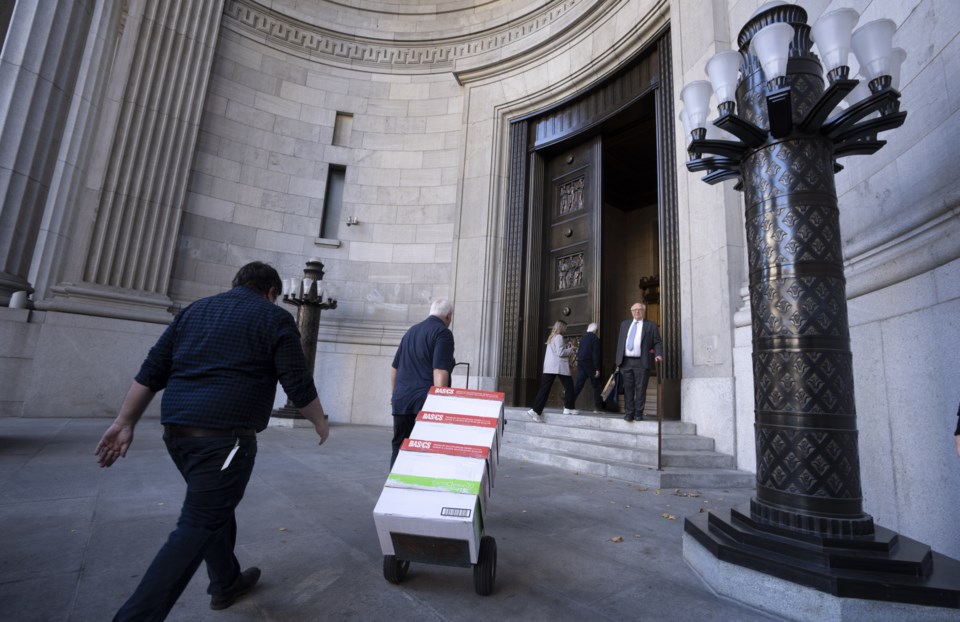MONTREAL — Quebec’s secularism law is an affront to the dignity and values of the province’s anglophone community, a lawyer representing the province's largest English-language school board told a Court of Appeal hearing Wednesday.
Religious diversity is a way of life in Quebec's English schools, Perri Ravon argued before the province’s highest court, which is hearing several challenges to the legislation that prohibits some public sector workers from wearing religious symbols on the job.
“English-language school boards experienced Bill 21 as an affront to their identity and their values,” she said.
It doesn’t matter, she added, whether the law is supported by the majority of Quebecers — an argument the Quebec government has made repeatedly in defending the controversial legislation.
“What is important,” Ravon added, “is that it is incompatible with the culture of the minority.”
Both the Quebec government and groups opposing the law are challenging an April 2021 court decision that largely upheld the controversial religious symbols law.
The ruling by Superior Court Justice Marc-André Blanchard did strike down provisions in the law related to English-language school boards because official language minority rights are protected under the Constitution — and are not subject to the notwithstanding clause invoked by the government.
Blanchard ruled that unlike their French-language counterparts, English-language schools could continue hiring teachers who wear hijabs.
Manuel Klein, who is representing the Quebec government, argued Tuesday that the law does nothing to threaten the culture of Quebec's anglophones, adding that Bill 21 should apply equally to all students in the province.
“Bill 21 has absolutely no effect on the cultural erosion of the linguistic minority,” he argued. “The educational experience must be equivalent to that of the majority,” he said.
Julius Grey, a lawyer representing the anglophone organization Québec Community Groups Network, told the Appeal Court Wednesday that the recruitment and assignment of school staff, especially teachers, “must be evaluated with the scope that the minority wants to give it, not with the restriction that the majority would like to give it. (...) It is not up to the majority to dictate the definition of the culture of the minority.”
This report by The Canadian Press was first published Nov. 9, 2022.
The Canadian Press



